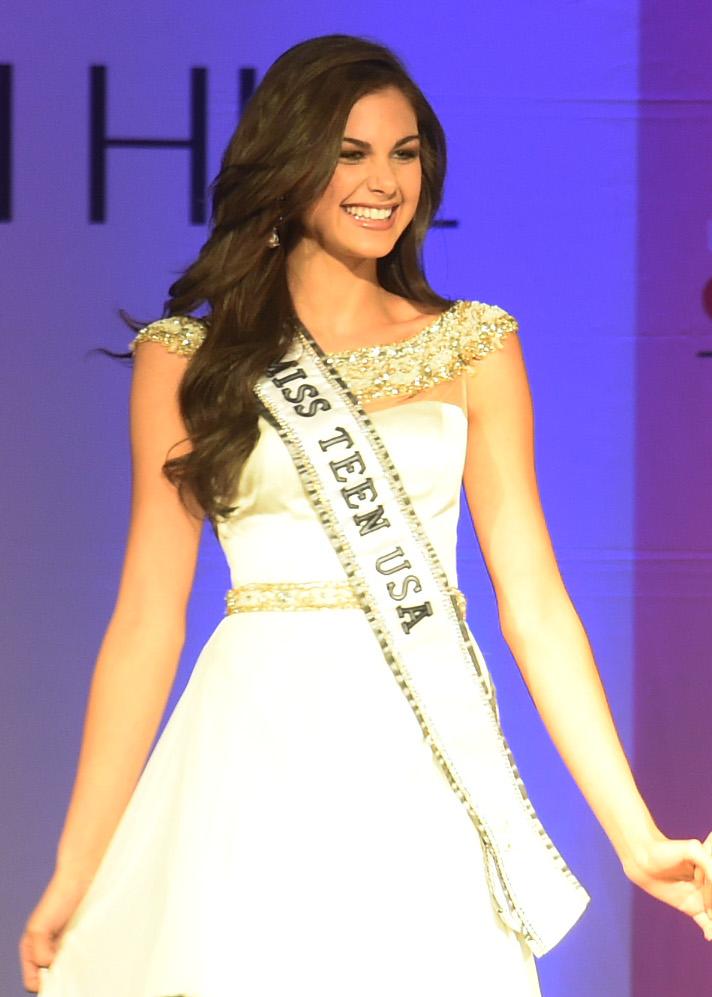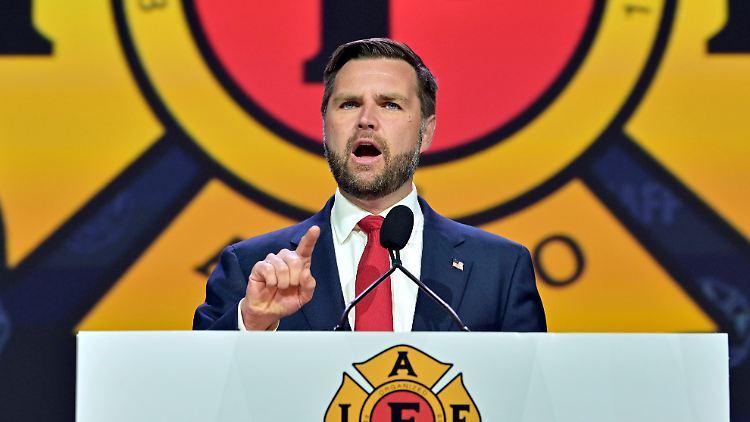In a recent statement to CNN, J.D. Vance, the Republican candidate for U.S. Senate in Ohio, defended a controversial social media post featuring a Miss Teen USA contestant. The post sparked backlash online, with many critics calling for an apology. However, Vance remains unapologetic, stating, “I’m not going to apologize for posting a joke.”
Table of Contents
- Response to Criticism Received for Controversial Social Media Post
- Explanation of the Intent Behind the Joke Shared on Social Media
- Addressing Accountability and Responsibility on Social Media Platforms
- Lessons Learned and Moving Forward After Social Media Backlash
- Q&A
- Wrapping Up

Response to Criticism Received for Controversial Social Media Post
In response to the criticism received for a controversial social media post featuring a Miss Teen USA contestant, Vance stated that he is not going to apologize for posting a joke. Despite the backlash, Vance defended his decision to share the post, emphasizing that it was meant to be lighthearted and humorous. He clarified that he did not intend to offend anyone and that the post was not meant to be taken seriously.
While some have condemned Vance for the post, others have come to his defense, arguing that it was a harmless joke and should not be blown out of proportion. As the controversy continues to stir debate online, Vance remains steadfast in his belief that humor should not be censored and that individuals have a right to express themselves freely on social media. It remains to be seen how this incident will impact Vance’s reputation and future social media presence.

Explanation of the Intent Behind the Joke Shared on Social Media
Upon being questioned about a joke shared on social media featuring a Miss Teen USA contestant, Vance stood by his decision to post the content and refused to apologize. The joke in question has sparked controversy among social media users, with some finding it offensive and others defending it as harmless humor.
When asked about the intent behind the joke, Vance reiterated that it was meant to be lighthearted and not malicious. He emphasized the importance of free speech and the ability to share jokes without fear of backlash. Despite the criticism, Vance remains unapologetic for his post and stands by his right to share content that he finds amusing.

Addressing Accountability and Responsibility on Social Media Platforms
In a recent interview with CNN, social media user Vance defended his decision to post a joke featuring a Miss Teen USA contestant. When asked about the controversial post, Vance stated, “I’m not going to apologize for posting a joke. It was meant to be funny and light-hearted, and I believe that people should be able to share humor on social media without facing backlash.”
Despite facing criticism from some users who found the joke inappropriate, Vance emphasized the importance of accountability and responsibility on social media platforms. He acknowledged that while humor can sometimes be subjective, users should still be mindful of the potential impact their posts may have on others. Vance urged for open dialogue and understanding when it comes to navigating the complex landscape of social media.

Lessons Learned and Moving Forward After Social Media Backlash
During a recent interview, Vance was questioned about a social media post featuring a Miss Teen USA contestant that garnered backlash. Despite facing criticism, Vance stood by his decision to share the controversial joke, stating, “I’m not going to apologize for posting a joke.” This response showcases the challenging nature of navigating social media in today’s society, where humor can easily be misinterpreted and lead to backlash.
As we reflect on this incident and consider the lessons learned, it is evident that online behavior carries real-world consequences. The power of social media to amplify messages and spark widespread conversations is undeniable, but it also underscores the importance of exercising caution and sensitivity when sharing content. Moving forward, individuals must be mindful of the potential impact of their online actions and strive to promote positivity and inclusivity in their digital interactions.
Q&A
Q: What was the controversial post made by Vance featuring a Miss Teen USA contestant?
A: The post featured a photo of a Miss Teen USA contestant with the caption, “Idk bout y’all but this is VERY quarantine chic. Hair stylist: closed. Nail tech: closed. Waxing: closed. Miss USA: canceled. But makeup artist: OPEN FOR BU$INE$$”
Q: Why is the post receiving backlash?
A: Many people found the post to be insensitive and offensive, especially given the current global pandemic and the cancellation of the Miss USA pageant. Critics argue that it mocks the contestant and trivializes the difficulties faced during quarantine.
Q: How did Vance respond to the criticism?
A: Vance defended his post, stating, “I’m not going to apologize for posting a joke. My page is meant for entertainment purposes and if people don’t find it funny they don’t have to follow me.” He also pointed out that the contestant herself liked the post.
Q: What is the general public’s reaction to Vance’s response?
A: While some people have come to Vance’s defense, arguing that he has the right to post whatever he wants on his social media, many others believe that his response lacks empathy and fails to take responsibility for the harm caused by the post.
Wrapping Up
Vance’s refusal to apologize for his controversial post has sparked a debate on the boundaries of humor and accountability in the age of social media. As the conversation continues to unfold, it remains to be seen how public figures will navigate the complexities of online expression in a constantly evolving digital landscape. Stay tuned for more updates on this developing story.





